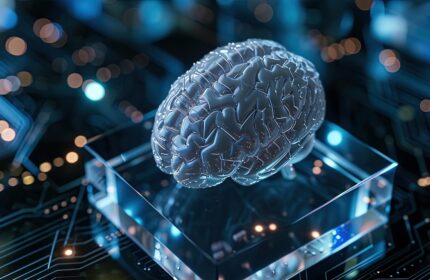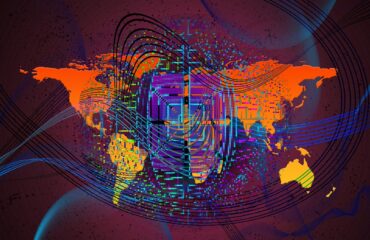
What Does the Future Hold After “Human Emulators” Make Millions of Workers Obsolete and Unemployed?
Elon Musk’s xAI plans to sell one million “human emulators,” and the company’s internal tests show how effectively the robots can do the work of humans. The emulators are trained to copy every step of human workers and operate at a small fraction of the cost of real people, but as they make us obsolete what does that mean for our future and how humanity should be responding in the present?

Low Earth Orbit Is Becoming Structurally Unstable with Megaconstellations, Space Debris, and Governance Issues
Low Earth orbit is filling faster than can be safely managed. New studies show that space debris falling to Earth can be tracked from seismic shockwaves, that planned satellite megaconstellations will overwhelm space telescopes, and that satellite networks would quickly face catastrophic collisions if control is lost. In the race to fill and militarize Earth orbit, the risk is structural and severe.

New Ways to Detect and Measure Black Holes Reveal Surprising Origins and More Mysteries
Recent studies show that black holes can be detected and measured in ways that go well beyond traditional telescope observations, using gravitational waves, neutrinos, and precise stellar dynamics. The results challenge long-standing theories about when black holes form and how they grow and move, and even question whether some identified black holes might instead be concentrations of dark matter. Tests may reveal surprising differences in black hole formation and types.

Novel Theory Explains Both Dark Matter and Dark Energy. Will a New Telescope Shed Light on the Enduring Mystery?
A new space telescope set to launch in 2027 could finally settle mysteries about dark matter, which is invisible yet comprises one quarter of mass and energy in the universe. Examining the gravitational effects of dark matter on galaxy formation, the telescope might prove or disprove a new theory that ties dark energy to electron pairs frozen in the birth of the universe, and possibly even to dark energy.
In Focus

The Mysteries of Dark Energy Deepen: Does it Expand the Universe at a Constant or Varying Rate?
Recent high-precision measurements are enabling increasingly detailed tests of dark energy, the invisible force that’s thought to drive the universe’s accelerating expansion. Researchers are re-examining the long-standing assumption that dark energy remains constant over time, and several studies indicate that its force may be variable. Conclusions strongly depend on dataset selection, modeling frameworks, and unresolved systematic effects, and therefore fall short of robust evidence for new physics.

Better Technology, Harder Questions: Is Astronomy’s Biggest Challenge Now Interpretation, Not Observation?
Astronomy’s limits are no longer how much data telescopes can collect, but how thoroughly scientists can interpret the information. AI tools are revealing previously unseen objects hidden in decades of Hubble Space Telescope images, giving reason for re-examination of fundamental questions such as the rate of the universe’s expansion. Many discoveries will likely emerge from better ways of extracting meaning from vast datasets.

Rapid Increase in Fake Online Content Highlights Urgent Need for AI Detection Technology
Generative AI tools like ChatGPT are making life-like images and content that are nearly impossible to identify as fakes and are being used to violate copyright, for deception, and even for blackmail and extortion. A recent survey found that fakes comprise as many as one-third of the videos recommended by YouTube’s algorithms to new users, while AI-generated content predominates in new websites. Although tools for detecting AI-generated content are improving, they remain unreliable as deception spreads widely.
Editorial Perspectives
 |
Blog
|
Blog
Tech Companies Race to Manufacture Intelligence but Nobody Agrees on What Intelligence Is. Will They Create a Frankenstein?
Big Tech is competing to create AGI, a machine intelligence that’s smarter than humans, but they differ on what intelligence is. We look at five of their definitions and recall the ongoing problems with AI sycophancy and self-preservation that point to a troubled future for AGI. Without controls to ensure such a powerful machine doesn’t wind up controlling us, we offer some suggestions – including applied philosophy – for a deeper appreciation of the potential for human intelligence.
 |
Blog
|
Blog
What’s the Value of Time in the Digital Era? In the Long Run, Slowing Down and Being Bored Can Produce a Wealth of Benefits
Belief that present value is greater than the future underpins the entire economic structure, but what if we reverse the assumption with faith that human ingenuity will drive future value that eclipses the present? History shows that the risk of underestimating the future can far outweigh the uncertainties of the present. The key to generating a better tomorrow may be the opposite of using AI to speed up today's work. Instead, we could give ourselves a break to escape a repeating cycle and allow human creativity to work its magic in time.
 |
Blog
|
Blog
Depriving Children of Digital Privacy is Theft and Abuse Often Masquerading as “Free Speech,” and Online Protection for Kids Falls Far Short of Ideal
Privacy of thought is crucial for developing young minds but is under threat from AI influencing the thoughts and actions of children. Adults bear a fundamental responsibility to protect kids from online harms that include default conversation sharing for chatbot training and corporate policies allowing chatbots to engage in sexual and racist discussions with children. Impractical online age verification measures should be bolstered by severe penalties for stealing and abusing kids’ privacy, with no tolerance for irresponsible speech masquerading as “free.”
Podcasts and Webcasts
Louis Rosenberg on Our Future with Virtual Reality’s Risks and Benefits
Lindsay House: Leading 20,000 Citizen Scientists to Uncover Dark Energy’s Secrets
The Fascinating World of Mathematics at the Fields Institute, with Dr. Deirdre Haskell
The Quantum Record is a non-profit journal of philosophy, science, technology, and time.
The potential of the future is in the human mind and heart, and in the common ground that we all share on the road to tomorrow. Promoting reflection, discussion, and imagination, The Quantum Record highlights the good work of good people and aims to join many perspectives in shaping the best possible time to come.
We would love to stay in touch and add your voice to the dialogue. Add your name and email below to be notified of updates to the publication:
Latest Quantum Computing

Computing Revolution is Closer with New Error Detection Protocol and the World’s “Most Accurate” Quantum Computer
Two major advances by Quantinuum have moved the goalpost closer for fully-functioning and error-free quantum computing. An unexpected result of the company’s research on the quantum contact process has led to a new method for error detection and correction, and Quantinuum’s new quantum computer, called Helios, boasts 99.9975% fidelity.

With Diamond Film and GKP Qubits, is Light About to Take Centre Stage in Quantum Computing and Drug Discovery Breakthroughs?
The discovery of a diamond film holds promise for enabling light-based memory for quantum networking and industrial-scale production of quantum processing units. Together with the recent development of photonic GKP qubits, the use of light for circuitry is advancing the prospect of full-scale quantum computing and its computational potential for discovering life-saving drugs.

Was Einstein Both Right and Wrong? New Atomic-Scale Tests Conflict on Light’s Wave-Particle Duality and Quantum Measurement
Two experimental results conflict on whether light only acts as a particle or as both a particle and a wave. Resolving the question of light’s actions of cause and effect could have significant consequences for quantum measurement and the creation of stable quantum computing circuits. One novel and intriguing interpretation is that light consists of both active photons and inert photons that are “dark.” The mathematics of dark photons support Einstein’s view that light is measurable only as a particle.
Featured Science News

Why Artificial Neural Networks Fail in Processing Emotions Essential for Human Memory—and How Failure Can Lead to Blackmail
Artificial neural networks behind ChatGPT, Claude, and other popular large language models fall short in processing emotions, which are essential to human memory and motivation. The fault lines that lead machines to sycophancy, blackmail, jailbreaking, and other serious output errors are rooted in machine learning and choices made by human trainers. We look at examples of algorithmic failures and the reasons why.
Latest Philosophy of Technology

What Does the Future Hold After “Human Emulators” Make Millions of Workers Obsolete and Unemployed?
Elon Musk’s xAI plans to sell one million “human emulators,” and the company’s internal tests show how effectively the robots can do the work of humans. The emulators are trained to copy every step of human workers and operate at a small fraction of the cost of real people, but as they make us obsolete what does that mean for our future and how humanity should be responding in the present?

Rapid Increase in Fake Online Content Highlights Urgent Need for AI Detection Technology
Generative AI tools like ChatGPT are making life-like images and content that are nearly impossible to identify as fakes and are being used to violate copyright, for deception, and even for blackmail and extortion. A recent survey found that fakes comprise as many as one-third of the videos recommended by YouTube’s algorithms to new users, while AI-generated content predominates in new websites. Although tools for detecting AI-generated content are improving, they remain unreliable as deception spreads widely.

The Quantization of Warfare: The Technological Battlefield That Overpowers Both Sides in Human Combat
Scientists are on track to delivering the overwhelming speed and accuracy of quantum computing within only four years, and military powers are already focussed on developing quantum sensing for precision navigation and enemy targeting. Quantum tech will also amplify military power with new materials, miniaturized weapons, and data decryption. Is quantized war a path we dare pursue, given our history with technologically-powered combat?
Latest Technology Over Time

After Centuries of Exploring the Mysteries of the Great Pyramid Shafts, Will Robotics Help to Uncover Their Purpose?
Over 200 years have passed since French Emperor Napoleon’s night in the Great Pyramid puzzling over its purpose, and there remains no consensus but many theories on the question. The reason for the shafts in the King’s and Queen’s Chambers is particularly mystifying, and we explore many possibilities. Will robots, which have penetrated the shafts most deeply, help to unlock the secret that’s thousands of years old?

Decoding Ancient Technology Using Modern Technology
From the discovery of a 500-year-old ocean-going canoe in the Chatham Islands to the AI-powered decoding of ancient Roman scrolls buried in volcanic ash, modern technologies—like radiocarbon dating, CT scanning, and AI—are transforming the study of ancient artefacts. Mysteries endure, however, like the undeciphered Voynich Manuscript, and continue to challenge our understanding of the past.

The Fascinating History of the Computer, from ENIAC, Vacuum Tubes and Transistors, to Microchips
We trace computing history from ENIAC, the first computer in 1947, from vacuum tubes to transistors, to the development of microchips that put far greater computing power in our our phones than the giant ENIAC had. With the world at the brink of a quantum computing revolution, what lessons can we draw from our computing history to shape the best possible future with our next technological leap ?
Latest Science News

Low Earth Orbit Is Becoming Structurally Unstable with Megaconstellations, Space Debris, and Governance Issues
Low Earth orbit is filling faster than can be safely managed. New studies show that space debris falling to Earth can be tracked from seismic shockwaves, that planned satellite megaconstellations will overwhelm space telescopes, and that satellite networks would quickly face catastrophic collisions if control is lost. In the race to fill and militarize Earth orbit, the risk is structural and severe.

New Ways to Detect and Measure Black Holes Reveal Surprising Origins and More Mysteries
Recent studies show that black holes can be detected and measured in ways that go well beyond traditional telescope observations, using gravitational waves, neutrinos, and precise stellar dynamics. The results challenge long-standing theories about when black holes form and how they grow and move, and even question whether some identified black holes might instead be concentrations of dark matter. Tests may reveal surprising differences in black hole formation and types.

Novel Theory Explains Both Dark Matter and Dark Energy. Will a New Telescope Shed Light on the Enduring Mystery?
A new space telescope set to launch in 2027 could finally settle mysteries about dark matter, which is invisible yet comprises one quarter of mass and energy in the universe. Examining the gravitational effects of dark matter on galaxy formation, the telescope might prove or disprove a new theory that ties dark energy to electron pairs frozen in the birth of the universe, and possibly even to dark energy.
